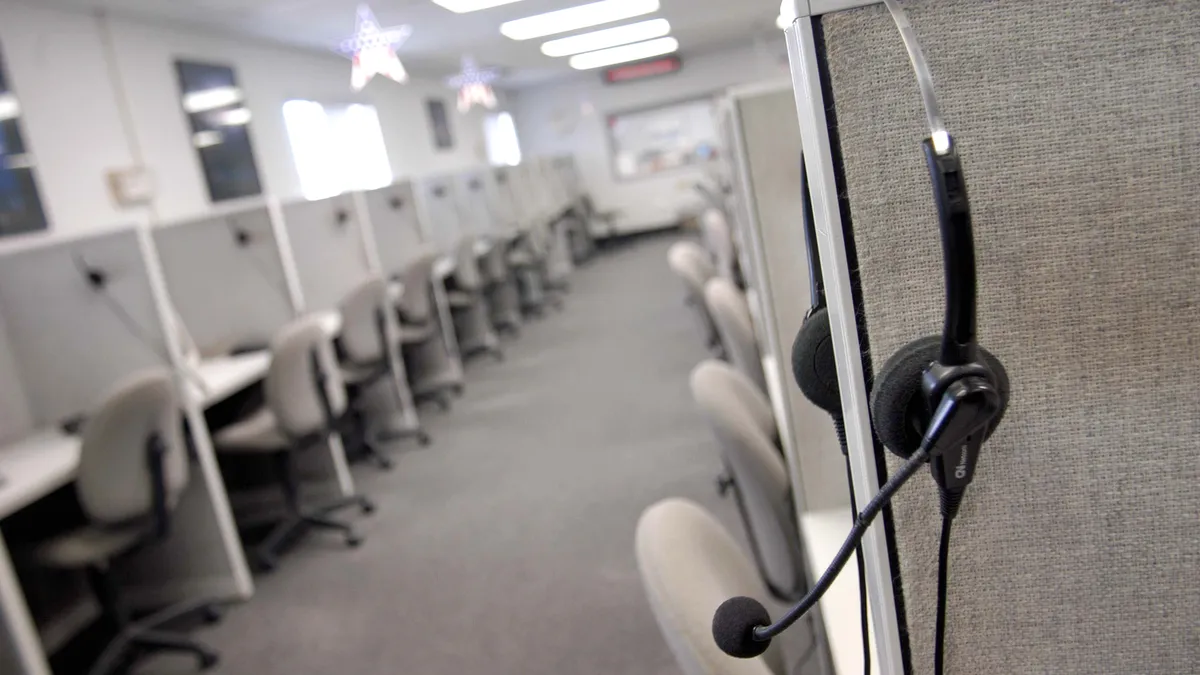In this moment where mental health, burnout, and inclusion are top of mind for HR folks, Black Women's Health Imperative strives to create lasting resources for Black women.
The main stressor many Black women face is a lack of psychological safety. Dr. Angelica Geter, BWHI's chief strategy officer, brought up Lean In's report on the State of Black Women in Corporate America, where only about a third of Black women surveyed said their manager gives them the opportunity to manage people and projects, compared to 39% of Latinas, 40% of Asian women and 43% of White women who said their managers give them increased opportunities for leadership.
Geter also highlighted the ever-present disparities between Black women's wages and that of their peers. For example, in a different study, Lean In reported that Black women earn 20% less than White women on average and even less than their White male peers.
As chief strategy officer, Geter told HR Dive she's leading BWHI's research on racism and its health effects on Black women. She's also focused on addressing these health disparities through targeted programming, policy and corporate engagement.
One of BWHI's signature programs is the Anti-Racism Toolkit for Wellness, designed to help Black women mitigate the tolls of microaggressions and structural racism. BWHI has also been honing its Corporate Equity Index, which rates companies on fairness, safety and equity. The goal is threefold: putting pressure on corporations, holding them accountable to their diversity, equity and inclusion goals, and creating safer workplaces for Black women, of course.
This interview has been edited and condensed for clarity.
What are some components of BWHI's multi-year initiative to improve Black women's health, in regards to the stressors of work?
The Black Women's Health Imperative's ground-breaking initiative includes a signature Anti-Racism Toolkit for Wellness (ART). ART was developed to help Black women practice healing and self-care while navigating discrimination in the workplace.
We developed this toolkit knowing that abolishing racist policies and practices takes time. In the interim, Black women need accessible and practical tools to cope with the effects of inequity.
We at the Black Women's Health Imperative contend that it cannot — and should not — be the responsibility of Black women themselves to handle the fallout of racism in the workplace. That's why we're also creating a Corporate Equity Index to rate corporations based on their fairness, safety, and equity.
The rating system not only allows Black women to easily find anti-racist workplaces, but puts positive pressure on corporations to publicly commit to making anti-racist change — and to tracking their progress by partnering with BWHI.
We are encouraging corporate leaders to join the first cohort of companies to pilot BWHI's Corporate Equity Index and to participate in our fairness training. These actions can help eliminate workplace stressors for Black women and promote systemic transformation.
Our evidence-based fairness training can be customized to meet the specific needs of a particular corporation, and go above and beyond typical diversity, equity, and inclusion sessions — which, if not evidence-based, can actually make bias in the workplace worse.
For context, how is workplace inequity tied to negative health consequences for Black women?
Black women face discrimination and inequity in the workplace in a myriad of ways. According to one report, Black women experience a wider range of microaggressions than their counterparts, like needing to provide additional evidence of their competence or having their decisions or recommendations dismissed within their area of expertise.
They're also more likely to feel pressure to perform than other employees, while simultaneously receiving less support from their managers than men, White women, Latinas, or Asian women. Only 36% of Black women report getting the opportunity to manage people and projects. And on average, Black women earn 37% less than White men and 20% less than White women.
Because Black women experience both racial and gender bias, discrimination and the stress that comes with it are nearly constant, especially at work. We know this takes a toll on Black women's mental health. Multiple studies have shown that constant, long-term stress can increase the risk of developing mental health conditions — such as anxiety, depression, and even post-traumatic stress disorder.
These social determinants don't just impact Black women's mental health. Racism and gender discrimination affect Black women on a biological level, aging them by at least 7.5 years and contributing to higher rates of stress-induced chronic illnesses such as diabetes and heart disease.
And because Black women are paid less than their White counterparts, they also have less disposable income to put towards treating the mental and physical health conditions that stem from the rampant experience of workplace racism and gender discrimination, which can cause those conditions, and therefore Black women's overall wellbeing, to worsen.
I am personally alarmed at how this vicious cycle has deteriorated Black women's physical and mental health for centuries. I believe it's high-time workplace policies were put in place to break it.
What does BWHI hope to accomplish with its Corporate Equity Index? What factors will BWHI take into account for its scoring system?
BWHI hopes to lead corporations toward a better understanding, qualitatively and quantitatively, understanding how their current policies and practices may contribute to racism and gender discrimination in the workplace.
Our equity index is completely voluntary and is not meant to be a punitive measure. Rather, it gives companies the opportunity to identify areas for improvement. It highlights corporations that are already doing a good job of fostering an inclusive, equitable, and fair workplace environment.
And while the index is meant to help corporations create positive change, it can also be an empowering tool for Black women to use as they navigate professional settings. At BWHI, we want Black women to know that they are entitled to safe and equitable workplaces and we want to help them avoid settling for anything less.
What's one thing HR pros can do to support Black women today?
One of the most powerful things HR professionals can do is acknowledge that it is not Black women's responsibility to solve or address racism, whether that's in the workplace or elsewhere. Rather, HR leaders must challenge themselves to address racism in the workplace, while making it easier for their Black employees to advance their professional goals while practicing self-care and healing.
Of course, any new anti-racist policies should be informed by the experience and input of Black employees, but these employees should not be the ones tasked with driving or implementing those policy changes unless they choose to do so. That should be done with complete autonomy and support from executive leadership.
Bottom line, HR professionals must commit to implementing evidence-based, anti-racist policies that are tailored to their workplaces specifically. For too long, workplaces have relied on conventional DEI training and methods that don't work for their unique professional settings — and conditions have, unsurprisingly, remained inequitable for Black women.
We now have data that points to what works and what doesn't. There's no excuse for continuing to use trainings and policies that have been proven ineffective.
By committing to science-backed principles, HR professionals can show they are serious about combating racism in the workplace and are not just "talking the talk." That strong commitment and belief is the first step towards creating meaningful change and "walking the walk."





















